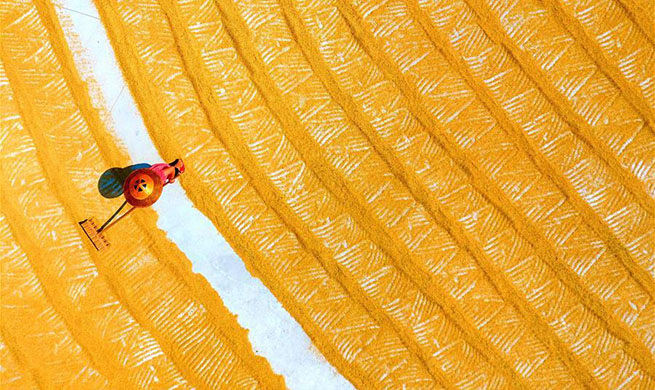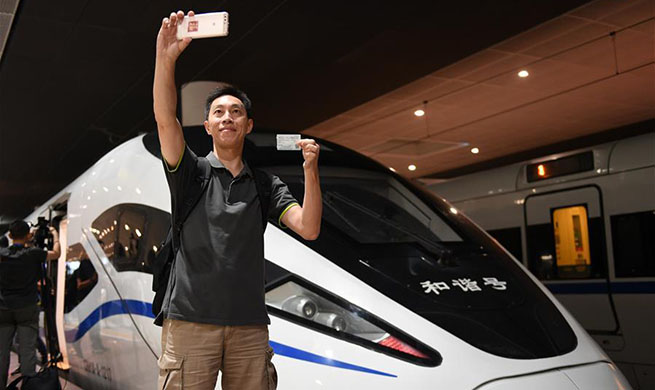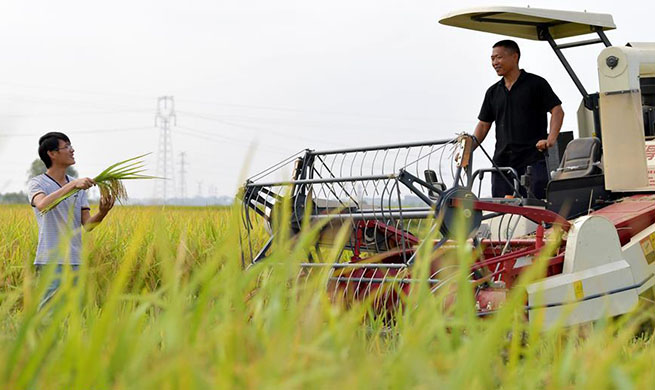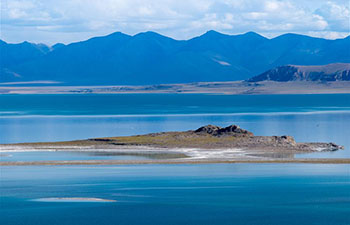TOKYO, Sept. 22 (Xinhua) -- Two small robotic rovers that had been released from Japan's space probe Hayabusa2 successfully landed on the asteroid Ryugu, Japan's space agency said Saturday.
The Japan Aerospace Exploration Agency (JAXA) released images taken by the two MINERVA-II-1 rovers on the asteroid, which is about 300 million km from Earth.
The rovers are also to perform functions such as measuring the surface temperature on the asteroid ahead of the planned landing of the probe on the asteroid in late October.
Each rover is about 18 centimeters in diameter, 7 cm in height and weighs around 1 kg. They have been designed to "hop" along the surface of the asteroid as its low gravity would complicate the traditional way of robotic explorers rolling on wheels or tracks.
Hayabusa2 reached its intended destination on June 27 near the asteroid, after traveling for more than three years, JAXA said.
According to the agency, the 600-kg Hayabusa2, which was launched from the Tanegashima Space Center in southwestern Japan in December 2014, has experienced no problems throughout its journey totaling 3.2 billion km.
The agency said that in total, Hayabusa2 is scheduled to make three landings on the asteroid and collect rock samples and will stay close to Ryugu for one and a half years.
During this time it will, according to JAXA, conduct a number of exploratory activities in an attempt to try to find clues about the solar systems evolution and the beginning of life itself.
Hayabusa2's mission will be completed when it returns to earth in 2020 with the samples of rocks it has collected from Ryugu, which is thought to contain water and other materials that could possibly support life.
In 2005, Hayabusa2's predecessor failed to land an explorer robot on the asteroid Itokawa.













